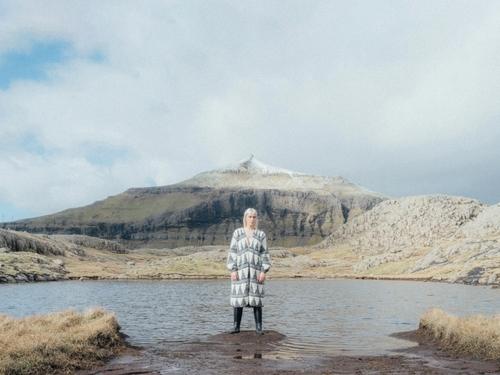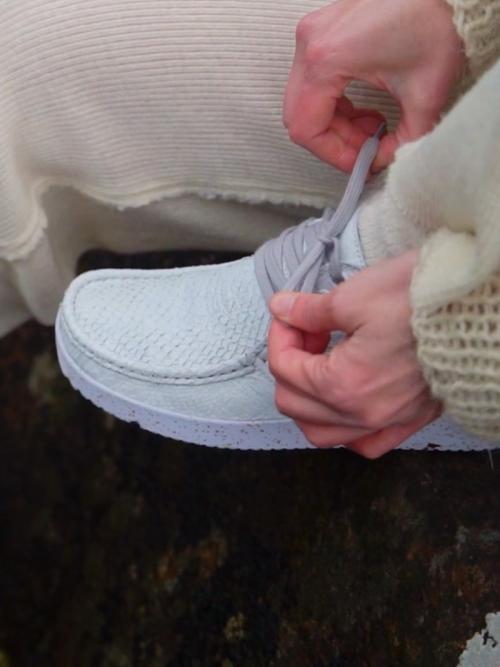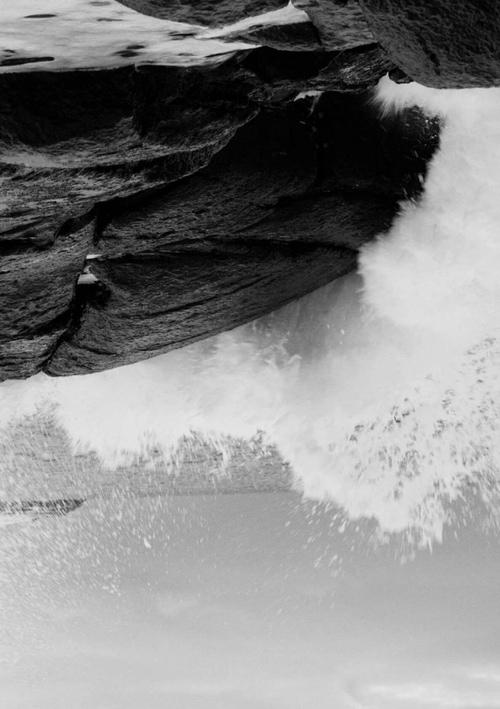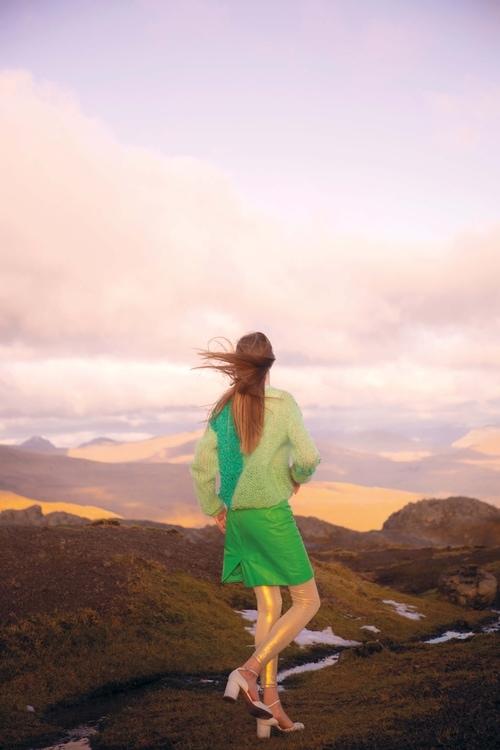knitting for freedom: empowering refugees through employment
November 19, 2019
Although the Faroese fashion brand is embodied in tradition form the north-Atlantic, a good part of their products is made by women in Jordan. Guðrun Rógvadóttir, co-founder of the knitwear company explains that they want to support women empowerment in their work, while the coordinator in Jordan says that the project is about finding a balance between making a good product and helping women.
The Faroese fashion brand, Guðrun og Guðrun, is embodied in the knitting traditions of the North Atlantic islands. For hundreds of years, the islanders have been wearing knitwear, using the wool from the sheep that always have been more numerous than the human inhabitants of the islands. In modern times, there has been an unavoidable change in clothing and people now wear all kinds of international brands. However, the knitting culture is still very evident, as a vast number of women living in the Faroes knit as a hobby. Women at all age also meet up with friends for a chat over coffee and homemade treats in small groups called “knitting-clubs”.
When I entered the house of Hind Hammouraq, who is coordinating Guðrun og Guðrun’s production in Jordan, I instantly thought of these knitting-clubs in the Faroes. In a small room, at the front of her house, four women were having coffee and knitting together. They discussed family, knitting-patterns and since Jordan was hit by strikes and demonstrations at the time, they also discussed politics. But as in the small knitting-clubs in the Faroe Islands, it was the knitting that brought these women together.
The production in Jordan
Guðrun og Guðrun was founded in 2002 by Guðrun Rógvadóttir and Guðrun Ludvig. While Guðrun Ludvig had a background in design and knitwear, Guðrun Rógvadóttir had quite a different background. She is educated in political science and was a partner in a Danish consultancy organization. Through this consultancy, she among others worked with development in Jordan before Guðrun og Guðrun was founded.
- Our work in Jordan was to provide consultancy to fashion companies. This provided me with a network in Jordan, Guðrun Rógvadóttir explains. Later it made Jordan an obvious choice, when the production of their knitwear became too big for the Faroe Islands.
- It was important to me that our production was more than only business and that there was a development aspect to it as well. When we had to start production outside the Faroes, we first talked to a Chinese businessman. He sent us some excellent samples of our sweaters, but when asked, how he found women for the job, he told me that this was easy; he just went to a poor village and blew his whistle, and the workers came running. This comment made us withdraw from the negotiations with him and eventually turn to Jordan, where I had experience and a network from my life as a consultant, Guðrun Rógvadóttir goes on. It is clear that she really is driven a wish to help with her product.
- If we were going to produce t-shirts with blood on our hands, we wouldn’t have started the company in the first place. It was important for us that our workers were working under decent circumstances, she further explains.
The women are however not employed on criteria’s of how poor they are and both Syrians Refugees and Jordanian family women work for the company. Guðrun Rógvadóttir explains that they are not micro-managing employment in Jordan, and that the whole production relies on trust with their partners, not least Hind who coordinates everything in Jordan.
- I must also stress that our production demands a great knowledge of knitting and exceptionally good craftsmanship. We cannot compromise when it comes to our product, even though we also want to help, where we can, Guðrun Rógvadóttir claims.
She further explains that the idea not only consists of providing work for indigence people in Jordan, but rather about supporting women in earning their own income, even if they have chosen to become fulltime housewives. The workers are payed for each sweater they make, the idea being that they can control how much they work themselves and therefore they can attend to other daily duties without getting stressed about the knitwear. Some month, a woman might only make one sweater while the same woman makes 10 the next month. Hind explains, that there is a fixed pay for all the normal sweaters, but that the women always get a bit more, if the work is more time consumingthan usual. At the time, I visited Hind, the women in Jordan were working on a particularly complicated sweater, which consists of many small pieces that are then sewed together. The women were talking about how many hours it took to make this sweater, as they had to sew these small pieces together after making a lot of them. Hind says that they will be payed more for these sweaters than for the more regular sweaters.
- When the sweater is as complicated as this one, I usually contact Guðrun and ask for a higher wage. She never says no, Hind explains.
Different backgrounds but similar daily routines
The room in the front of Hind’s house is a small furnished glass-room. My visit was during Ramadan, in the early summer months, so the room was warm and everyone’s daily routine was affected by the Holy month. The women knitting around the table were of all age and from different backgrounds. Nagjuwa is Syrian, but moved to Jordan many years ago, when she married a Jordanian man. Sameera is Jordanian, and has been part of the program since the beginning, even before Hind. Nazreen is a retired teacher, who taught in different Jordanian public schools. When she was a teacher, one of her pupils was Syreen, who is the last and youngest woman in the room.
Hind Hammouraqh herself has a diverse background. Before working for the Guðrun og Guðrun, she worked for the Jordanian police, leading the female force for some years. After a career in law enforcement, she worked for Princes Pesma, the sister of the late King Hussein, before Hind was hired to work with the training of the Iraqi Police force after the war in Iraq.
Hind Hammouraq met Guðrun Rógvadóttir, when Guðrun was working in Jordan as a consultant. Hind was the leader of the Circassian Society, and it was through this organization that the knitting project in Jordan started. Circassian women have a long tradition for knitting, and therefore the match was perfect and made for an easy beginning of the project. When Guðrun one day was teaching the knitting, Hind was asked to help, since she spoke English well and already knew some knitting herself. This help with interpretation turned into a long-term partnership and Guðrun Rógvadóttir does not save her compliments for Hind, which she is quite impressed with herself.
Hind and the four women that are knitting in her home this day are all of Circassian descend, but Hind explains that this is not they case for the approximately 25 women, who knit for the Faroese company in Jordan. She says that Even though the project started through the Circassian Society in Jordan, the plan never has been to exclusively hire women of Circassian descend.
- The women are from all parts of society and have different nationalities. The Circassian Society in Jordan does a lot of social work, which is not restricted to the Circassian community, Hind explains. The Circassians of Jordan are so integrated that many of them don’t speak their original language anymore.
- There is no difference between Circassian and Jordanian daily life anymore, because all of us (the Circassian) have become Jordanians, she states.
The other women in the room explain that the knitting they do for Guðrun og Guðrun is important for their monthly income, but it is also about spending their time. These women all have in common that most of their children have moved out of the family home, and therefore they have less housework to do. Syreen, who still has a young daughter to take care of explains that when there is no knitting to do, she spends more time in front of the television and that she always is anxious to work those days. For Syreen, the money from the knitting means it is possible for her to pay for different stuff her daughters need, and even though her husband provides for the main income of the family, their life would not be the same, if she had no income. For others, who work for the company, the income is about survival. Some Syrian Refugees work for the company and Nagjuwa, who is Syrian, explains that her two sisters both worked for the company, when they came to Jordan as refugees and not were able to receive any economical support from NGOs.
- One of my sisters was pregnant, when she came to Jordan. If she hadn’t got a job, knitting for this company, she wouldn’t be able to give birth at a hospital. Through this work, it was possible for her to save up for medical support during the birth. Now she is in Europe, but she tells me that she misses knitting, Nagjuwa explains.
A balance between helping and needing
- Around 20 to 25 women knit for the company on a regular basis. We have been up to 50 women before, but there is not as much work right now, Hind explains. She explains that the fashion company of course is a business company.
- We are not a NGO. It is all about finding a balance, where we can help, while we are producing a product, we can be proud of. If we for example only have 40 sweaters to make, it does not make sense to give every woman one each. At those times, it is always the most experienced and fastest women that get the job, Hind says.
She also explains that many of the women have become very fast knitters and that the production of the difficult sweaters is significantly faster now than ten years ago.
Guðrun Rògvadóttir confirms that the production in Jordan has become a vital part of the over-all production. She says that some designs not would have been possible, if they hadn’t started the production in Jordan, because the Faroese production isn’t fast enough.
Some years back, Guðrun og Guðrun started a production in Peru, which also is based on supporting women that cannot take normal jobs outside their homes.
- The production in Peru started, as the demand for the star sweater grew rapidly after the main character in the Danish TV show, Forbrydelsen (The Killing), wore it in the series. We discovered that many costumers found the Faroese wool to be too dry and itchy, Guðrun Rógvadóttir explains.
- We decided to produce the same sweater with Alpaca wool from Peru and it made more sense to us to make a production in Peru than to buy the yarn in Italy and transport it to Jordan and then the Faroes, the co-founder furthermore explains. But she denies that the production in the Faroes eventually will be outsourced completely.
- No, we need the Faroese production. We have some complicated and delicate styles that we can only make in the Faroe Islands as we need our internal technical knitting experts ongoing to guide the knitters throughout the process. But as our production grows, it will be growing in Jordan, Peru or possibly somewhere else, as the company is involved in many socio-economic projects and interest for example has been shown in East-Greenland.
Back in Jordan
At Hind’s place, the women are packing up their gear and getting ready to leave. They normally knit at home, but sometimes meet each other and knit together. All these five women live close to each other and most of them must get home to cook for the Iftar, since it is the month of Ramadan at the time of my visit. As the women are getting ready to leave, the chatting continues. Some are explaining why this exact sweater is more complicated than others.
- Every small peace takes half an hour to make and then you sew them together, one of them explains. The women are not discussing politics or Ramadan now; they are showing pictures of their children and grandchildren, which many of them will meet in the evening. One of the women mentions that the younger generation does not want to do any needlework and that their daughters probably never will knit clothes for their children. Again, it strikes me that this is probably exactly what is discussed in the knitting-clubs in the Faroe Islands more than 5000 kilometres away.
The articles were originally published in Faroese Newspaper Dimmlætting by the same author.
Author
Regin Winther Poulsen













